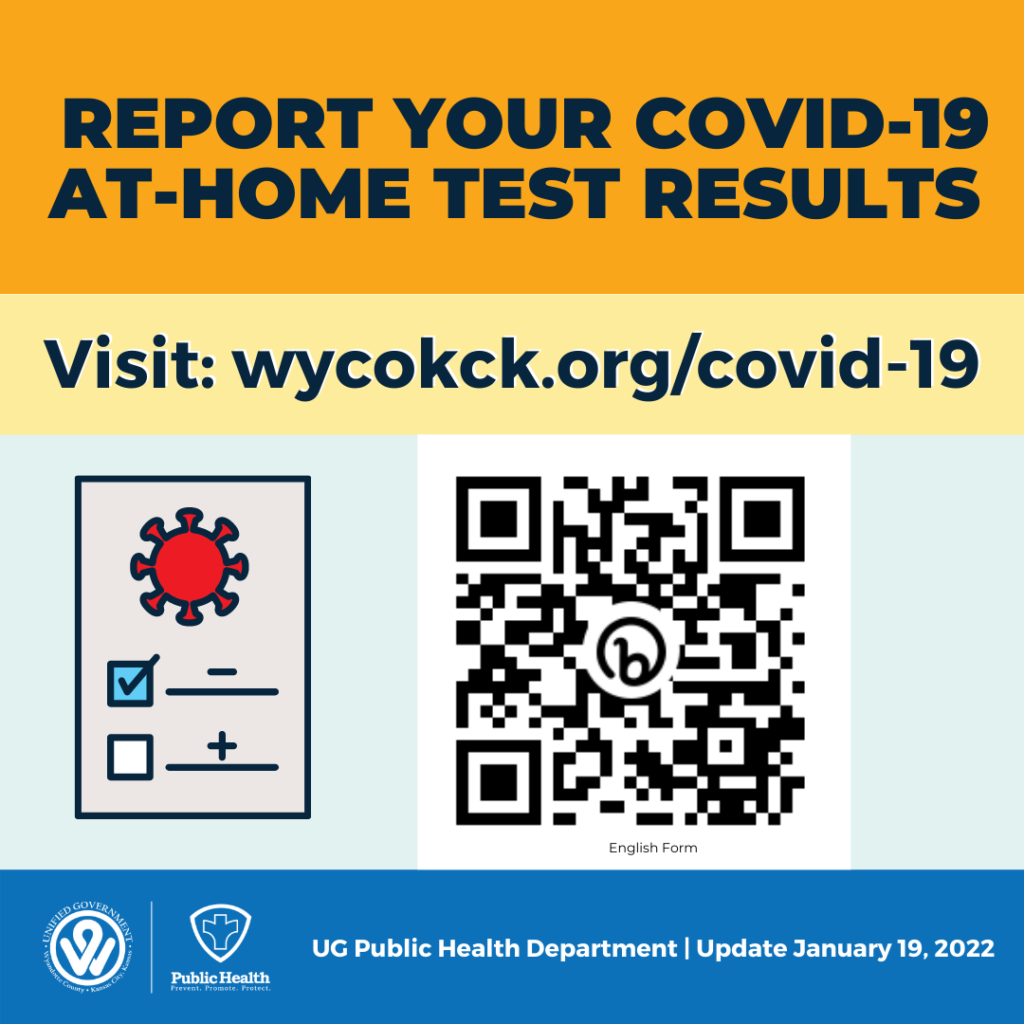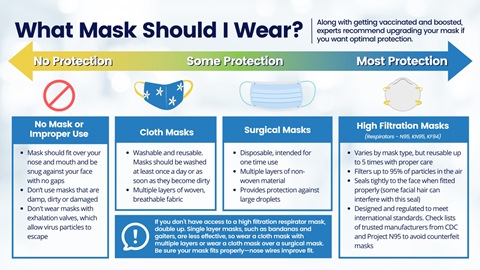With 720 new COVID-19 cases reported in Wyandotte County from Friday to Monday, and hospitals experiencing high numbers of COVID patients, the Unified Government Health Department is discontinuing contact tracing, according to a spokesman.
The COVID numbers have been so high across Kansas that the state is not able to keep up with contact tracing, and made a decision to discontinue it recently, Janell Friesen, spokesman for the Health Department, said on Monday. The Health Department is following suit. Locally as well, the numbers are too high to keep tracing the contacts of people who have tested positive, she said.
The state of Kansas reported 14,270 new positive cases on Monday from Friday, according to Kansas Department of Health and Environment statistics.
“We do still contact people who test positive, we just don’t also reach out to people they’re in close contact with,” Friesen said. “If possible, we ask them to reach out to anybody they know they’re in contact with.”
There were three new COVID-19 deaths in Wyandotte County from Friday to Monday, and there were 15 new COVID deaths in Kansas in the same period.
“We certainly would recommend folks take a number of precautions now,” Friesen said. “We are still seeing pretty high spread in the community. Hospitals are pretty full right now.”
For a lot of people, that means wearing a mask in public indoor spaces, maintaining social distance, getting vaccinated and a booster, she said. That also includes taking precautions for gatherings, she added.
Health officials won’t know for sure yet the effects on COVID numbers of large gatherings such as the 73,242 people who attended the Chiefs-Bills football game Sunday at Arrowhead Stadium in Kansas City, Missouri. It’s also hard to tell the effect on COVID numbers, if any, from smaller public gatherings, such as the indoor in-person state of Kansas meeting on attorney services for the indigent on Saturday at KCKCC.
The Health Department doesn’t close down gatherings any more, as it could in the early days of the pandemic. Instead, the burden has shifted to you to prevent yourself from getting sick.
“It’s something where we ask everyone to look at what they’re doing in their day-to-day life,” Friesen said, and they help people think of ways they could minimize the risk.
The Health Department is there to offer guidance to individuals and organizations in Wyandotte County, Friesen said.
Employers and organizations can take precautions for people who work at their organizations, she added. School boards make the decisions on COVID precautions for each district.
“There’s a combination of what individuals can do and what organizations can do in terms of precautions and how we can layer on multiple things to help protect them,” Friesen said.
Report your at-home COVID test results online

Friesen said the Health Department has added a feature recently where Wyandotte County residents may report their at-home COVID test results online.
The “Report a Home COVID Test” feature is at the Health Department’s COVID website at wycokck.org/COVID-19.
This reporting form is for people in the community to take a test at home, then go online and report the positive or negative test result, she said. This is separate from tests that are given at the Health Department’s clinics or at other clinics in the community, at doctors’ offices and hospitals, she added. People should not report their clinic tests to the online form; the Health Department or other clinics will report those tests, she added. This new form is only for the at-home testing kits that people use in their own homes.
The at-home COVID-19 tests are available for purchase at CVS, Walgreens, Walmart and other stores, and can be ordered online at Amazon.com. The federal government has announced it will give free COVID-19 at-home tests, up to four free tests per household. The free at-home test kits can be ordered at covidtests.gov.
Friesen said they are awaiting more information on the federal government’s plan to provide N95 masks at different community locations, such as pharmacies.
The Health Department is asking everyone who tests positive for COVID-19 from a home test or a clinic to stay home for at least five days, and until they feel better and are fever-free for 24 hours, and wear a mask around others for another five days after that.
Those who are positive who were near anyone while contagious, up to two days before symptoms, should let them know they have been exposed to COVID, the Health Department stated. Quarantine and isolation guidelines are at https://www.cdc.gov/coronavirus/2019-ncov/your-health/quarantine-isolation.html.
Higher grade masks recommended

The Health Department is recommending people wear higher grade masks to help stop the spread of COVID in Wyandotte County. High filtration masks such as N95 or KN95 masks are recommended because they filter out up to 95 percent of airborne particles, according to the Health Department.
The mask seals tightly to the face when fitted properly, according to the Health Department. If an N95 or KN95 is not available, double-masking with a cloth mask over a surgical mask can increase protection, according to the Health Department.
Mask quality matters, but any mask correctly worn and covering the nose and mouth offers more protection than no mask, health officials said.
Free COVID tests available
The Health Department provides free COVID-19 tests at its testing and vaccination site at the former Kmart at 7836 State Ave. Testing is available from 9 a.m. to 3 p.m. Monday through Friday.
More COVID testing sites are available online at KnowBeforeYouGoKS.com.
You should get tested for COVID-19 if:
• You’re sick
• You’ve been exposed to COVID-19
• You will be traveling
• You are attending a large gathering or event
It is important to stay home while you wait for your test results, especially if you have any symptoms or you have been exposed to COVID-19, the Health Department stated.
COVID-19 numbers
• There have been 36,457 confirmed cases through Friday, Jan. 21, and 5,810 probable cases of COVID-19 in Wyandotte County throughout the whole pandemic. The numbers for Monday, Jan. 24, were 37,177 cumulative cases and 441 cumulative deaths, an increase of three deaths since Friday.
• There have been 438 deaths due to COVID-19 in Wyandotte County as of Friday.
• The 7-day average: 483 cases per day
• Percent positivity (new method): 33%
• 59% of Wyandotte County residents have received at least 1 dose of vaccine
• 49% of Wyandotte County residents are fully vaccinated
• Find data, vaccine, and testing information updated each week at wycokck.org/COVID-19
The state of Kansas reported 695,675 cumulative COVID cases on Monday, Jan. 24, an increase of 14,270 cases since Friday, Jan. 21, according to KDHE statistics.
There were a cumulative 7,336 deaths, an increase of 15 deaths since Friday in Kansas.
All-time high of COVID patients at KU Health System
The University of Kansas Health System reported an all-time high of COVID inpatients, according to doctors at the morning media update Monday. There were 213 total COVID inpatients, an increase of 10 from Friday.
There were nine COVID deaths over the weekend at the health system, and a total of 40 for January. Those with the active COVID virus totaled 133, up nine from Friday. Twenty-four COVID patients were in the intensive care unit, down four from Friday. Sixteen patients were on ventilators, up two from Friday. There were another 80 inpatients at KU Health System who had COVID but were out of the acute infection phase, an increase of one from Friday.
Dr. Dana Hawkinson, medical director of infection prevention and control at KU Health System, said masks are effective at stopping the spread of COVID. He cited a study last September at St. Louis University and another study done in Bangladesh.
Dr. Steve Stites, chief medical officer at KU Heath System, said the evidence was overwhelmingly clear that masks work. He said studies should have controls and variables that are important to evaluate. People should not just search for studies that back their position, but should look at the overall picture.
